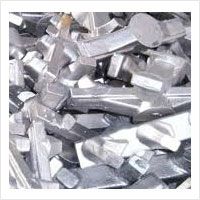
zinc metal
Zinc (chemical symbol - Zn) is a bluish white lustrous metal. It is normally covered with a white coating on exposure to the atmosphere. Zinc is the fourth most common metal in use, after iron, aluminium and copper in terms of the metal’s annual production. The primary end use of zinc is in the galvanizing and coating sectors, which currently account for an estimated 57% and 16% of the total production respectively. Zinc can be recycled indefinitely, without loss of its physical or chemical properties & is used to produce batteries, fuel cells, die casting & making brass. Zinc is used to produce batteries, fuel cells, die casting & making brass.
...more
Tin Metal
Tin is an important commodity in international trade and is used in hundreds of industrial processes throughout the world. The industrial application of tin is in the following sectors: Solders - 32 %, Tin Plate - 27 %, Others - 17 %, Alloys - 14 %, P C Stabilizers - 6%, Tinning - 4%. Tin is also used as a coating on the surface of other metals to prevent corrosion and provide low toxicity. Tin is used to coat a number of products, including cans, containers & Packages. We are offering Tin Metal as
...more
Thermal (Steam) Coal
Coal is a readily combustible black or brownish – black sedimentary rock. It is composed primarily of carbon along with variable quantities of other elements, namely sulphur, hydrogen, oxygen and nitrogen. It is formed from vegetation, which has been consolidated between other rock strata and altered by the combined effects of pressure and heat over millions of years to form coal seams.It is fossil fuel, the largest source of energy for the generation of electricity worldwide, as well as one of the largest worldwide source of carbon dioxide emission. Coal is extracted from the ground by mining, either underground or in open pits.
...moreSilicon Metal
Silicon is the most common metalloid. It is a chemical element, which has the symbol Si and atomic number 14. As the eighth most common element in the universe by mass, Silicon very rarely occurs as the pure free element in nature, but is more widely distributed in dusts, planetoids and planets as various forms of Silicon Dioxide (Silica) or Silicates. On Earth, Silicon is the second most abundant element (after oxygen) in the crust, making up 25.7% of the crust by mass. Silicon has many industrial uses. Silicon is widely used in semiconductors because it remains a semiconductor at higher temperatures than the semiconductor germanium and because its native oxide is easily grown in a furnace and forms a better semiconductor/dielectric interface than any other material. Silicon is alloyed with aluminium for use in engines as the presence of Silicon improves the metal’s castability. Silicon can enhance iron’s magnetic properties. It is also an important component of steel, which is toughens
...moreSilicon Manganese
Silicon Manganese (SiMn), a type of Ferroalloy with high contents of Manganese and Silicon, is made by heating a mixture of Manganese Oxide (MnO2), Silicon dioxide (SiO2) and Iron oxide (Fe2O3) with carbon in a furnace. They undergo a thermal decomposition reaction. It is used as a deoxidizer and an alloying element in steel. We are offering Silicon Manganese with High & Low carbon as
...more
Scrap Metals
The most ubiquitous collection of scrap metals, Ferrous metals form a significant share of the Fondelco recycling business. Ferrous metals consist of iron and steel and is categorized into two different but equally important groups, industrial and obsolete. We deal in industrial scrap which includes different kinds of unused and unfit-for- further use metals as well as obsolete scrap which includes old and unwanted metals.
...more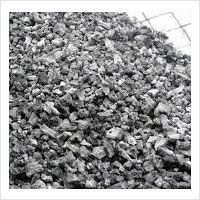
Nut Coke
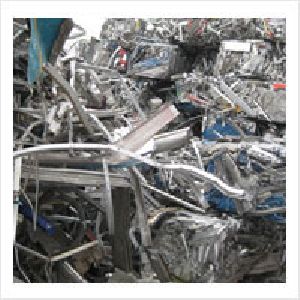
Non Ferrous Metal Scrap
Fondelco Metal & Alloys Pvt. Ltd. is trading of Non-Ferrous Metal Scrap which is built on a solid network of counterparties allowing us to buy and sell in many parts of the World. The bulk of our suppliers are located in the Africa, North Africa & European Countries. The majority of our clients are in Middle East and Asia. Non-Ferrous Metals form the good share of the overall scrap recycling business of Fondelco. All metals except iron and steel form the Non-Ferrous metal group. The group consists of metals including copper, aluminium, brass, lead, zinc and nickel. The Non-Ferrous metal scrap have among the highest of values in the market though these have a comparatively smaller share of the scrap metal market.
...more
Nickel Metal
Nickel is a metal with a bright future as it is the main alloying metal needed in the production of certain types of stainless steel. Two – third of all nickel produced goes into stainless steel, to promote a stable, ductile, austenitic structure as well as contribute to corrosion resistance. The strength and life span of products manufactured using stainless steel are superior to the one’s produced using non-stainless steels. Nickel is used to manufacture stainless steel mainly & other items as (Other steel grades, non ferrous alloys, aerospace & military applications, coins, electronics….etc)
...more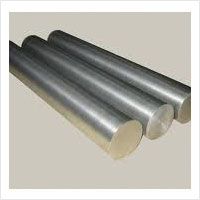
Molybdenum Metal
Molybdenum (often referred to as 'Moly') is valued as an alloying agent in structural and stainless steels because of its strength, corrosion resistance and ability to hold shape and operate at high temperatures. Molybdenum has a high density and melting point, and is resistant to heat and wear. At 2,623 °C (4,753 °F), it has one of the highest melting points of all metal elements, while its coefficient of thermal expansion is one of the lowest of all engineering materials. Moly also has a low toxicity. Molybdenum is used as an additive in structural steels because of its corrosion resistance, strength and durability. Being particularly useful in protecting metals against chloridic corrosion, such steels are used in a wide range of marine environment applications (e.g. offshore oil rigs), as well as oil and gas pipelines. Stainless steels account for another 25% of Molybdenum demand, which value the metal's ability to strengthen and inhibit corrosion. High-speed steels and super alloys use Moly to strengthen, increase hardness and resistance to wear and deformation at high temperatures
...more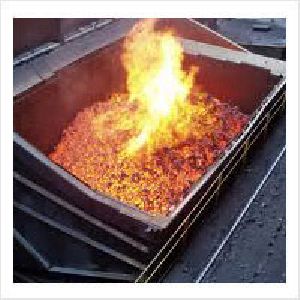
Met Coke
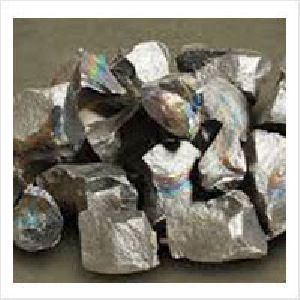
Medium Carbon Ferro Manganese

Manganese Ore
Manganese is an essential element in the growth of the world economy. The 94% of manganese ore worldwide is used in Manganese Alloys Production & rest 6% to Electrolytic Manganese Metal. The Manganese Alloys is consumed 100% by Iron & Steel Industries. It is an essential and non-substitutable input to steel-making due to its alloying properties which improve toughness and hardness and its ability to desulphurise steel and prevent oxidation.We are doing the international trading of Manganese Ore of below origin. Australia Brazil Cote D’ Ivore Gabon India Indonesia South Africa Turkey Zambia
...more
Magnetite Iron Ore
Iron ores are rocks and minerals from which metallic iron can be economically extracted. The ores are usually rich in iron oxides and vary in color from dark grey, bright yellow, deep purple, to rusty red. The iron itself is usually found in the form of hematite (Fe2O3), magnetite (Fe3O4) goethite (FeO(OH)), limonite (FeO(OH).n(H2O)) or siderite (FeCO3). Ores carrying very high quantities of hematite or magnetite (greater than ~60% iron) are known as "natural ore" or "direct shipping ore", meaning they can be fed directly into iron-making blast furnaces. Iron ore is the raw material used to make pig iron, which is one of the main raw materials to make steel. About 98% of world iron ore production is used to make iron in the form of steel.
Size : 6-50 mm
...more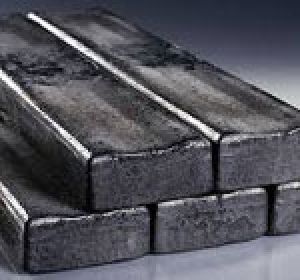
Magnesium Metal
Magnesium is a chemical element with the symbol Mg, atomic number 12, atomic weight 24.3050 and common oxidation number +2. Magnesium Metal is an alkaline earth metal that has the symbol Mg in the periodic table of elements. Magnesium metal is a fairly strong, silvery-white, light-weight metal (one third lighter than aluminum) that slightly tarnishes when exposed to air. Magnesium is traditionally produced in ingot form of approximately 7kg each having the purity as 99.9%..The main applications of Magnesium is, in die casting (alloyed with Zinc), to remove sulfur in the production of iron and steel, the production of titanium in the Kroll process.
...moreLow Carbon Silicon Manganese
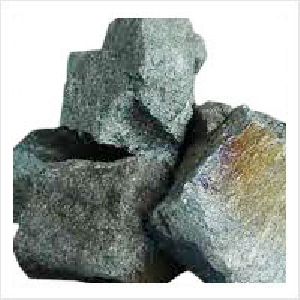
Low Carbon Ferro Manganese
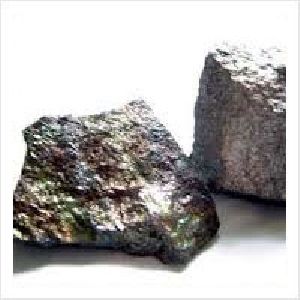
Low Carbon Ferro Chrome
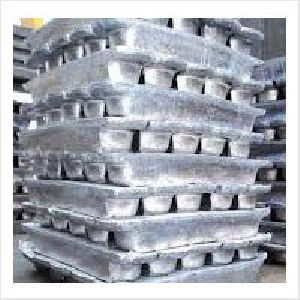
lead metal
Lead (chemical symbol - Pb) is very corrosion-resistant, ductile and malleable blue-grey metal that has been in use for at least 5,000 years. It is one of the most sustainable and recyclable commodities. It can be recycled indefinitely, without loss of its physical or chemical properties. Recycled lead accounts for more than 60% of the total lead production. Lead is used to link tanks that store corrosive liquids and as a covering on some wires and cables to protect them from corrosion. Lead’s high density makes it useful as a shield against X – ray and gamma – ray radiation. Most of the Lead is used in the production on lead – acid storage batteries.
...more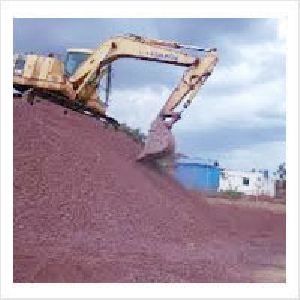
Iron Ore
Iron ores are rocks and minerals from which metallic iron can be economically extracted. The ores are usually rich in iron oxides and vary in color from dark grey, bright yellow, deep purple, to rusty red. The iron itself is usually found in the form of hematite (Fe2O3), magnetite (Fe3O4) goethite (FeO(OH)), limonite (FeO(OH).n(H2O)) or siderite (FeCO3). Ores carrying very high quantities of hematite or magnetite (greater than ~60% iron) are known as "natural ore" or "direct shipping ore", meaning they can be fed directly into iron-making blast furnaces. Iron ore is the raw material used to make pig iron, which is one of the main raw materials to make steel. About 98% of world iron ore production is used to make iron in the form of steel. We are doing the international trading of Iron Ore of below origin. Australia Brazil India Iran Russia South Africa Turkey Ukraine
...more
High Carbon Ferro Manganese
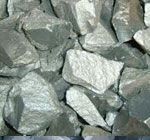
High Carbon Ferro Chrome

Foundry Coke

Ferrous Metal Scrap
Fondelco Metal & Alloys Pvt. Ltd. is trading of Ferrous Metal Scrap which is built on a solid network of counterparties allowing us to buy and sell in many parts of the World. The bulk of our suppliers are located in the Africa, North Africa & European Countries. The majority of our clients are in Middle East and Asia. The most ubiquitous collection of scrap metals, Ferrous metals form a significant share of the Fondelco recycling business. Ferrous metals consist of iron and steel and is categorized into two different but equally important groups, industrial and obsolete. We deal in industrial scrap which includes different kinds of unused and unfit-for- further use metals as well as obsolete scrap which includes old and unwanted metals.
...moreBe first to Rate
Rate ThisOpening Hours